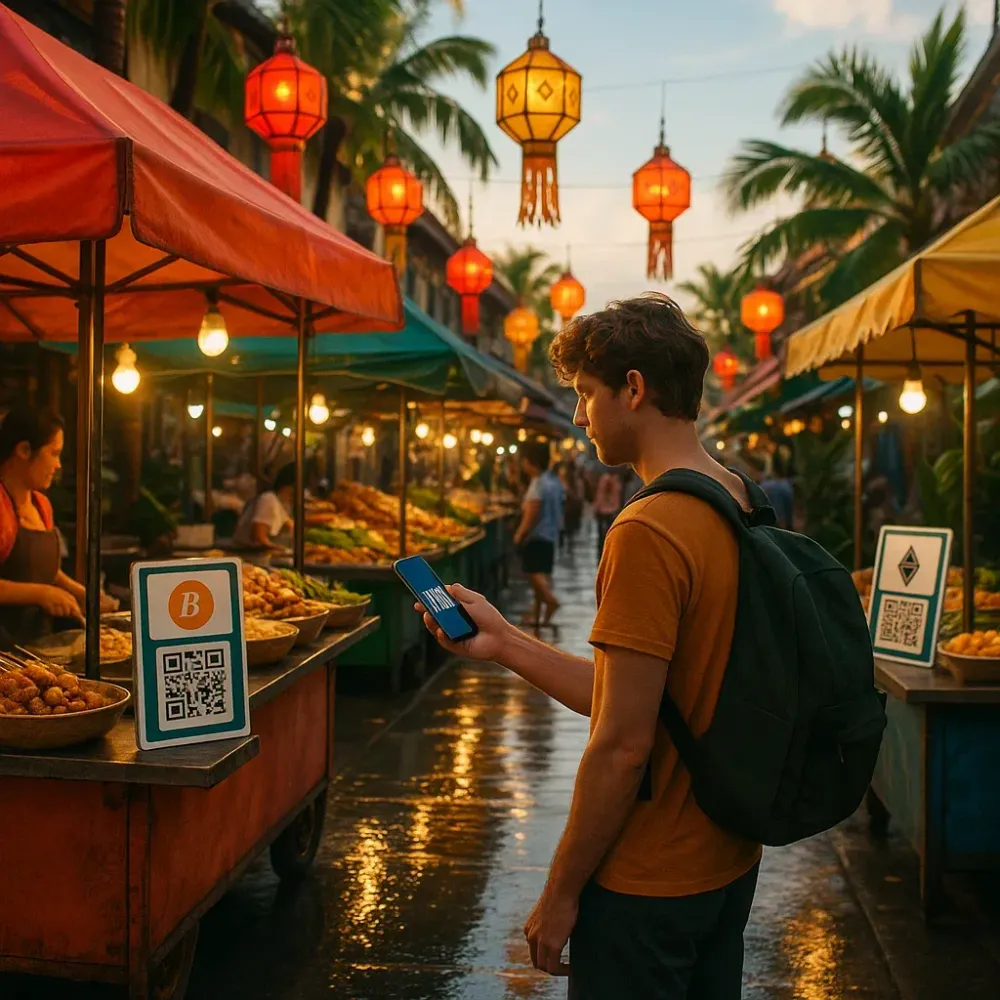Thailand Launches Crypto Sandbox for Tourists to Spend Digital Assets
🇹🇭 Thailand Goes Full Crypto: New Sandbox Lets Tourists Spend Digital Assets Like Cash
From beach bars to Bangkok street food, your crypto is now good for pad thai. Thailand’s SEC and Central Bank want to turn digital assets into a tourist magnet.
Thailand isn’t just betting on crypto—it’s betting on tourists with crypto. In a move that could redefine how travel meets fintech, Thailand’s Securities and Exchange Commission (SEC) and the Bank of Thailand (BOT) just launched a regulatory sandbox that allows foreign tourists to convert crypto into baht—and spend it IRL across the country.
Forget cash exchange kiosks at Suvarnabhumi. We’re talking on-chain to QR code in minutes.
💸 What’s Actually Happening?
Thailand’s crypto sandbox will let non-residents:
- 🪙 Convert crypto into Thai baht through licensed exchanges
- 🧾 Use that baht for purchases at verified local merchants
- 📱 Pay via Thai QR Code—yes, even at street food stalls
It’s basically the first state-approved “crypto-to-tourist-economy” funnel in Asia.
But this isn’t a free-for-all. The sandbox has monthly spending caps:
- 🛍️ 50,000 baht for small merchants
- 🏨 500,000 baht for big players who pass KYC/KYM checks
All users must complete KYC under Anti-Money Laundering Office (AMLO) standards.
📈 Why Now?
Because Thailand’s tourist boom needs fuel—and crypto people travel.
In 2024:
- 🌍 Global crypto adoption hit 617M users
- 💰 Crypto market cap reached 3.7 trillion
- 🇹🇭 Thailand welcomed 35.5M tourists (just shy of 2019’s all-time high)
But Bangkok wants more—and sees crypto as the loyalty card of next-gen travelers.
“Digital asset holders are high-value tourists. If we let them spend easily, they’ll spend more—and boost our economy,” said an insider at Merkle Capital.
💡 What Makes This Different?
Unlike past experiments with Bitcoin ATMs or prepaid travel cards, this sandbox is fully integrated with Thailand’s digital payment rails.
And unlike Dubai or Singapore, which cater to crypto whales and elite institutions, Thailand is making crypto local:
- Use it at 7-Eleven
- Use it at night markets
- Use it on island ferries
This isn’t about showing off—it’s about turning digital wealth into real-world spending.
🧱 What’s the Catch?
Not everyone can jump in yet. The sandbox is:
- Still under public consultation until August 13, 2025
- Geofenced for foreign tourists only
- Spending-limited and heavily monitored to avoid misuse
But if successful? It could unlock:
- 🚀 A digital baht pilot
- 📲 Cross-border stablecoin usage
- 🏦 Thailand as Asia’s crypto-tourism HQ
🌏 The Bigger Picture
Thailand is already Asia’s #1 crypto holder per capita and #5 globally. So this isn’t some marketing gimmick. It’s a real experiment in national-scale adoption.
By turning crypto into usable local currency without breaking monetary policy, Thailand is building a bridge between DeFi and beach resorts.
🧠 TL;DR
- Thailand is launching a crypto-to-baht tourism sandbox
- Foreigners can convert digital assets and spend via QR code
- Limits apply: 50K baht for small merchants, 500K for verified ones
- Full KYC and anti-money laundering compliance required
- Public consultation runs until August 13, 2025
- If successful, this could be a blueprint for crypto-native tourism economies

Recent News
All Time High • Live
Have questions or want to collaborate? Reach us at: [email protected]










